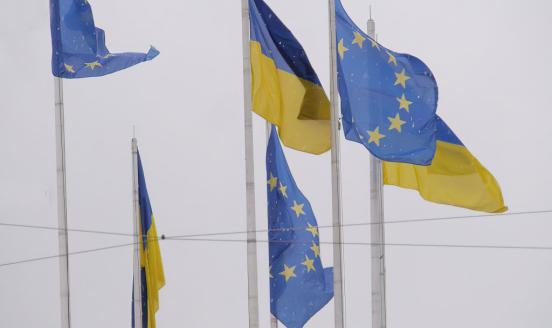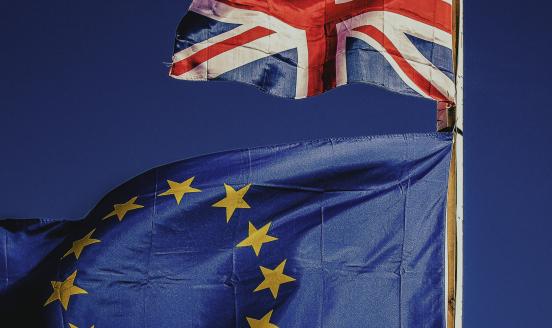International arbitration is the way to settle the UK’s Brexit bill
The UK-EU financial settlement risks becoming a toxic stumbling block in Brexit negotiations. But there are actually much more important issues to dis
The Brexit negotiations have not begun well. Instead of focusing on what really matters, the two sides (the European institutions and the UK Government) are publicly exchanging blows. Last week the Financial Times reported that Donald Tusk, the European Council president, has called for a ceasefire in the war of words over Brexit, saying that the “negotiations are difficult enough as they are. If we start arguing before they even begin they will become impossible”.
What really matters in the Brexit negotiation is the future relationship between the EU and the UK, and what it implies for citizens and business. There are roughly 3 million EU citizens living in the UK and about 1 million UK citizens living in the EU, who are anxiously waiting to know their status and rights after Brexit. There are also thousands of companies producing in the UK and trading with the EU27 or producing in the EU27 and trading with the UK, which are eagerly waiting to know what sort of trade and investment deal will be agreed.
What matters much less, but seems to be one of the main sources of the current tension between the two sides, is the UK’s Brexit bill. The EU and the UK will have to agree on a financial settlement of assets and liabilities linked to the UK’s EU membership at some point before the country leaves the EU.
Agreeing on the scale of the UK’s divorce bill will not be easy. One reason is that estimates of the bill vary a great deal depending on various assumptions. According to my Bruegel colleague Zsolt Darvas and his co-authors the upfront gross payment that Britain will have to make upon exit could range between €54bn and €109bn. This would translate into a net payment ranging between €25bn and €65bn once the UK receives its share of EU spending, assets and repaid EU loans.
The difficulty in finding an agreement on the Brexit bill should not come as a surprise. Any divorce procedure involving money is complicated for the simple reason that it is a zero sum game: if one sides gets more the other gets less. This is why such procedures typically end up in front of a judge or an arbitrator. And the same should apply to the EU-UK divorce.
Asking a judge or an arbitrator to resolve the size of the Brexit bill would free negotiators from a thorny issue and allow them to concentrate their political capital on what really matters to citizens and business: the future EU-UK relationship. And it’s not just a question of political capital. Time is also of the essence. Michel Barnier, the EU’s chief Brexit negotiator, has rightly underlined that getting a deal done and ratified within the two-year deadline imposed by Article 50 means that negotiations need to be concluded by autumn next year.
Who should the judge or arbitrator be? Viewed from Brussels, the obvious choice would be the European Court of Justice in Luxembourg, but this would clearly be unacceptable to London where the ECJ is viewed as partial.
A more suitable choice would be the International Court of Justice (ICJ) in The Hague. The ICJ is the principal judicial organ of the United Nations, and its role is to settle, in accordance with international law, legal disputes submitted to it by states.
But probably the best choice of all would be the Permanent Court of Arbitration, which is also located in The Hague but is independent from the ICJ. The PCA was established in 1899 to facilitate arbitration and other forms of dispute resolution between states. It is not a court in the traditional sense, but a permanent framework for arbitral tribunals constituted to resolve specific disputes. Currently, the PCA has 121 Contracting Parties including all EU27 states and the United Kingdom.
Arbitration typically involves three or five arbitrators. In the case of three (five) arbitrators, each party appoints one (two) arbitrator(s). The two (four) appointed arbitrators then choose the third (fifth) arbitrator who acts as the presiding arbitrator of the tribunal.
The PCA is no stranger to disputes between EU member states. For instance, in 2003 the PCA handled the Iron Rhine Arbitration between Belgium and the Netherlands. The case description on the PCA’s website indicates that:
The Iron Rhine is a railway linking the port of Antwerp in Belgium to the Rhine basin in Germany via the Netherlands. Its origins lie in the 1839 Treaty of Separation (“1839 Treaty”) which conferred certain transit rights on Belgium. Following World War II, parts of the Iron Rhine gradually fell into disuse and during the 1990s the Netherlands took legal steps to designate nature reserves that lay across its route.
The Parties disagreed as to the allocation of costs and risks for works necessary for the long-term use of the railway. In particular, the Parties disagreed on the interpretation of Belgium's right of transit under the 1839 Treaty in light of subsequent developments, including environmental protection measures and the requirements of European law.
A second example concerns a case in 2001, when the PCA was asked to handle a dispute between Ireland and the United Kingdom concerning the OSPAR Convention. According to the PCA’s website:
This matter concerned a dispute between Ireland and the United Kingdom in connection with the commissioning of the mixed oxide nuclear fuel reprocessing plant (“MOX Plant”) in the United Kingdom on the coast of the Irish Sea in 1996…
Ireland objected to the commissioning of the MOX Plant and requested access to [certain] information…under Article 9 of the 1992 Convention for the Protection of the Marine Environment of the North-East Atlantic signed at Oslo and Paris (“OSPAR Convention”). The United Kingdom denied that the information fell within the ambit of Article 9 of the OSPAR Convention.
The PCA has even handled a dispute between the European Union and one of its member states in the 2013 Atlanto-Scandian Herring Arbitration between Denmark (acting on behalf of the Faroe Islands) and the European Union. The case description on the PCA’s website indicates that:
The Kingdom of Denmark in respect of the Faroe Islands instituted arbitral proceedings against the European Union under Annex VII to the United Nations Convention on the Law of the Sea (the “Convention”). The dispute concerned the interpretation and application of Article 63(1) of the Convention in relation to the shared stock of Atlanto-Scandian herring.
Obviously it can be argued that none of these cases concerned EU membership and more generally that the PCA, contrary to the ECJ, has no experience in handling disputes that concern EU membership. But this virginity should be viewed as a plus in handling the Brexit financial settlement case, since it concerns leaving the EU rather than EU membership per se, and since the departing state would not accept the involvement of the ECJ.
Finally, one may legitimately ask why the two parties should be willing to forego their efforts to find a political settlement and turn instead to arbitration. The answer is that it would save them the type of acrimony that has been building up recently and which is sure to increase as time goes on - given the zero-sum nature of the exercise. The two parties should recognise this and seek arbitration as soon as possible. They would then be able to concentrate their efforts on finding a political solution to the future EU-UK relationship and remove uncertainty about the rights and obligations of citizens and business in the EU27 and in the UK after Brexit. This would be a win-win situation for the two sides compared to the alternative of no deal at the time of Brexit.



